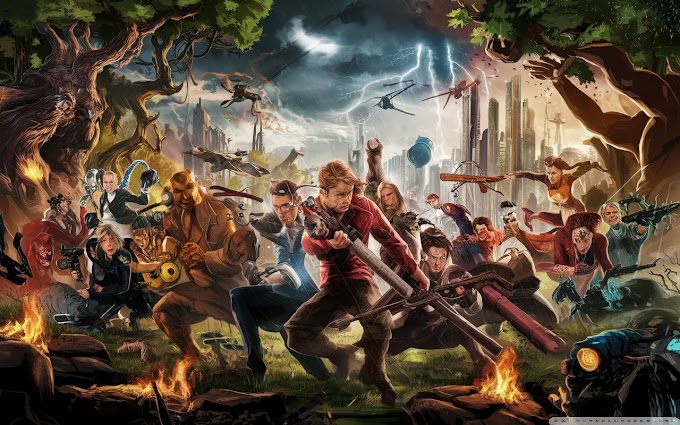Imagine, you are playing that lets you explore different things and learn Have a blast!!
That's what simulation games in education are all about.
Let's Deep dive into the education world and explore the simulation games in education.
Table of Contents
What is Simulation Games in Education? - A Comprehensive Guide for Students
- In the constantly changing field of education, New techniques and tools are continuously being researched to improve learning experiences.
- The use of simulation games in education is one such strategy that is gaining popularity.
- Simulation games provide a dynamic and realistic environment that engages students and enables them to apply general concepts in everyday situations.
- By allowing students to engage in practical experiences outside of the classroom, simulation games offer a unique way of teaching.
- They provide a secure environment for students to explore various scenarios, make decisions and see the results.
- Simulation games bridging the gap between theory and practice. students gain essential skills that they can use in the real world and great knowledge of subjects by actively involving in the learning process.
What games help with learning?
- In recent years, there has been growing interest in using games for educational purposes. games are well known for being effective tools for energetic and inspiring students.
- Let's explore games that help with learning and enhance educational experiences:
1. Math and Logic Games
- "Prodigy Math Game" is a challenging, interactive math game that teaches a variety of math concepts.
- "Math Blaster" is a game with a space theme that teaches math skills through arithmetic problems and problem-solving skills.
2. Language and Vocabulary Games
- "Duolingo" is a well-liked learning platform that makes learning new languages fun and enjoyable.
- "Wordscapes" is a word puzzle game that improves spelling and word recognition skills while also increasing vocabulary.
3. Adventure and Science Games
- "MinecraftEdu" is an educational version of "Minecraft" that is used to teach science, engineering, and creativity.
- "The Magic School Bus Explores the Solar System" is an interactive game that explores the solar system and science concepts.
4. History and Social Studies Games
- "Civillization VI" is a strategy game that allows players to study historical events, create civilization and practice critical thinking.
"Oregon Trail" is a well-known educational game that involves players in American West's westward development.
5. Problem-Solving and Critical Thinking Games
- "Portal" is a physics-based puzzle game that tests players' critical thinking skills and their ability to solve geometrical puzzles.
- "The Incredible Machine" is a game that promotes creative problem-solving by having players build devices to carry out particular objectives.
How do teachers use simulation?
- Since it allows teachers to design complete and engaging educational experiences for their students, the importance of simulation has grown as a tool in education.
- Simulations give students the opportunity to apply their knowledge, refine their critical thinking abilities and get practical experiences in controlled environments in real-world situations.
- Teachers can follow these practices to use simulations in class effectively:
- Define learning objectives precisely:
specify the knowledge and abilities that the students learn from simulation.
- Clearly explain the rules and instructions:
Make sure students are aware of the simulation's goals, basic fundamentals, or any particular duties or roles they are playing.
- Integrate simulations with other instructional tactics:
To create a thorough learning environment, integrate simulations with other instructional strategies like lectures, dialogues, and research projects.
What are the benefits of simulation-based learning for students?
- There are numerous benefits of using simulations in teaching and giving learning to students:
- Active Learning: Through interactive exercises, simulations give chance to students to participate actively and have hands-on experience in situations that are actual.
- Use of Skills: Students use their theoretical understanding of subjects in a context that improves learning.
- Brainstorming and Problem-Solving:
Students are prepared for critical thinking, problem-solving, and outcome analysis for real-world situations.
- Safe and Controlled Environment: Simulations determine an atmosphere where students can explore and experiment without worrying about failures.
Frequently Asked Questions (FAQs)
Do simulation games replace traditional teaching methods?
No, Simulator games don't take the place of conventional educational techniques; rather, they improve them. While simulation games provide interactive and interesting learning opportunities, they cannot completely take the place of teachers and traditional methods of teaching.
Are simulation games expensive to implement in schools?
Depending on the level of difficulty and scope of the games selected, different simulation game setup expenses may apply in schools. There are less expensive options accessible, even if some simulation games could need costly technology and software.
Many simulation games may now be played on computers, tablets, or even phones thanks to technological improvements, which eliminates the need for expensive gadgets.
Can simulation games be used for remote or online learning?
Yes, you can learn remotely or online by using simulation games. They actually work especially effectively in these learning contexts. Since they can be viewed and played digitally, simulation games are available to all students, wherever they may be.
How can educators measure the effectiveness of simulation games?
Through a variety of techniques, including the assessment of learning outcomes, observation and feedback, polls and surveys, and assessments of real-world application, educators can evaluate the success of simulation games.
Educators can develop an in-depth understanding of the value of simulation games and their effect on students' learning outcomes by combining several assessment techniques.






